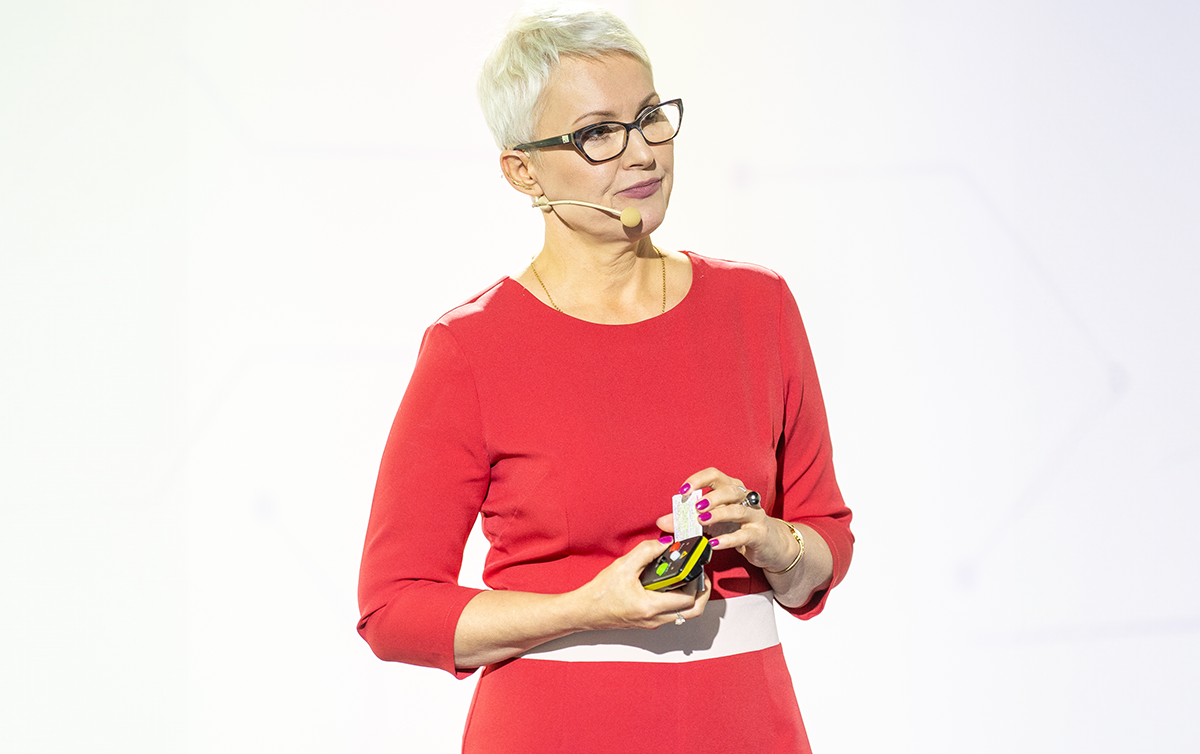More and more employees expect their employers to demonstrate a greater commitment to the physical and mental well-being of their workforce. Does this imply that companies should provide full-time positions for a physician, dietitian or psychologist?
Fortunately, there is no need for such sweeping changes. The benefits market was quick to recognize the need and come up with an effective and convenient solution for the employers and employees alike.
Read on to find answers to the following questions:
What are the main benefits that modern employees need?
What is the contribution of experts to maintaining the team’s well-being?
Where and how can employers find experts?
What is the impact of experts on increasing the effectiveness of other benefits?
Solution tailored to contemporary needs
The office work model has undergone a dramatic transformation due to the recent pandemic. Colliers reports that up to 89% of organizations have recently adopted a hybrid working model. Of course, some employers had utilized it previously. Nevertheless, the full extent of this transformation becomes apparent when examining pre-pandemic data. During that time, up to 76% of organizations had a traditional in-office work model. It is thus clear that the pandemic completely reversed the proportions [1].
It seems that the new working model is appreciated by Polish employees. According to a Deloitte survey, nearly half of the respondents would actively seek new employment if they were requested to spend more days in the office. What is more, one in three employees would accept a pay reduction in exchange for an appropriate number of remote work days [2]. The trend can also be seen in the approach to benefits.
Keep in mind that nearly 90% of companies have already implemented a hybrid work model. Close to half of all employees would actively look for alternative employment if requested to work entirely from the office.
Online benefits – the trend of tomorrow?
A report compiled by Benefit Systems shows that up to 56% of employees expect their employers to introduce or increase the availability of benefits in an online format [3]. Considering that many employees work in the hybrid model, this expectation seems fairly reasonable. In such work settings, team members look for solutions that are versatile and easily accessible regardless of where they work on any given day.
It must also be highlighted that in some organizations hybrid working refers to a rota system or an almost fully remote work schedule (with the exception of occasional in-office meeting days). Some companies permit specific departments to work entirely remotely.
In such work scenarios, online benefits prove to be an ideal solution because:
they do not differentiate between workers,
they are available to all employees, regardless of the type of work they do.
Keep in mind that hybrid working systems must incorporate an extended range of online benefits. This approach ensures that employees are not excluded based on their work location or nature of their work.
Support needed now
However, an increased demand for online solutions is not the only new development in the post-pandemic era. Both employees and entire organizations have also shifted their approach to well-being. A report prepared by Benefit Systems shows that nearly half of all employees expect employers to increase commitment to supporting their physical activity and healthy lifestyle, and providing psychological support.
Important note: every 1 euro invested in health promotion at workplace brings a return of 2.5 euros to 4.8 euros in terms of lower costs of absenteeism [4].
However, companies should not try to get away with ‘pretend’ benefits. Employees expect comprehensive practical solutions that are tailored to the company’s specific profile but, most importantly, suited to their individual preferences.
Important note: 73% of employees expect benefits that are tailored to their needs and capabilities [3].
How can these needs be met with online solutions?
Experts as a bonus – a Benefit Systems case study
A good example is the solution that we opted to use at Benefit Systems. Among other benefits, we offer the MultiSport Program. Naturally, we are continuously evolving our portfolio in response to market trends, but our efforts go even further. Our other flagship product is MultiLife. It was designed to provide clients with a wide range of online well-being solutions.
The MultiLife platform features e-courses and e-tools (such as Diet Creator), and apps dedicated to those who want to live a healthier life and build a smarter workout routine – or handle stress better (such as Focusly). However, there are still other opportunities to explore.
With MultiLife, you have access to online advice from experts:
An important complement to these options is Telemedi – a service offering employees easy unlimited access to an internal medicine doctor or obesity treatment specialist, also online. In addition, they have the opportunity to seek advice from other specialists at more favorable rates.
Other online experts will be joining soon, including:
a language instructor, and
a financial trainer.
What is the key aspect of all the well-being solutions offered? The fact that they are tailored to the actual needs of each user. This is why, in collaboration with experts, dietitians, personal trainers, and psychologists, we have created original programs, available on the MultiLife platform, to support employees’ individual goals. Examples include: “Aspiring Athlete”, “Mindfulness and Slow Life” or “Health and Quality of Life”. Employees set their goals, and then make use of personalized services, webinars, and consultations with specialists.
In addition to addressing the actual needs of the team, the solution has many other advantages. It is a good idea to explore their potential, even if just to enhance the effectiveness of other benefits. Keep in mind that a sports card or access to medical services is now essentially a market standard. Both benefits work much better when underpinned by the solid expertise of specialists providing useful tips on how to exercise, maintain a proper diet, and boost physical and mental well-being (to complement preventive healthcare).
As mentioned above, expert services available online as part of non-wage benefits also serve as a remedy for different types of exclusion among the workforce. In addition to training opportunities at a specific location and time, they provide a good opportunity to standardize the level of knowledge on a particular subject within the team and ensure that every employee has equal development opportunities.
This is why MultiLife users are offered access to foreign language courses, among other perks. In addition to standard courses, including English, German, Spanish and French, a new addition to the offering is ‘Polish for Ukrainians’ as an obvious nod to changes in the Polish labor market.
Another service falling under this category is Youniversity – a platform providing access to valuable insights from seasoned experts and business professionals.
Changes in progress
Well-managed modern organizations are recognizing, now more than ever, the importance of staying attuned to the well-being of their workforce. In addition, employers focus on employee growth through solutions that create equal opportunities and possibilities for everyone. It appears that the market supports this mission and supplies them with effective tools. All they need to do is reach for them. Offering these activities in an online format has a range of advantages: affordability, convenient access, and integration with other available perks.
It is also a simple and efficient method of gaining access to expert knowledge and consultations on a scale that was previously out of reach. This is why modern benefits are more appealing than ever, for employees and employers alike. They help everyone achieve their individual goals with greater efficiency.
References:
https://www.colliers.com/pl-pl/research/hybrid-and-beyond
https://www2.deloitte.com/pl/pl/pages/human-capital/articles/Raport-Stan-pracy-hybrydowej-w-Polsce.html
Raport Benefit Systems „Zmęczeni, obojętni, niezaangażowani. Postpandemiczne potrzeby pracowników” 2022
Raport „Ekonomiczne i społeczne koszty niedostatecznej aktywności fizycznej Polaków” (2021) - https://www.researchgate.net/publication/349916140_Ekonomiczne_i_spoleczne_koszty_niedostatecznej_aktywnosci_fizycznej_Polakow





















